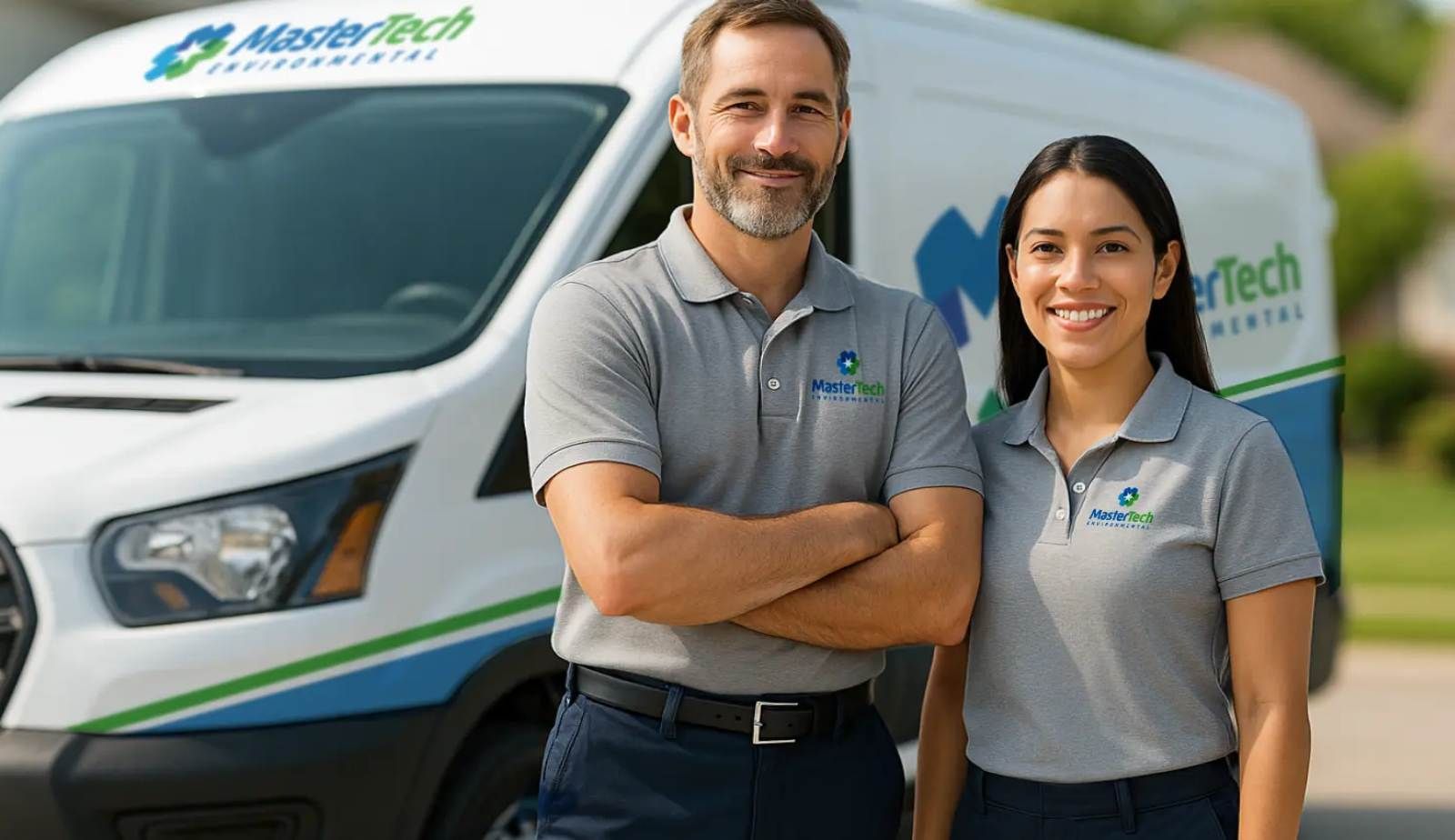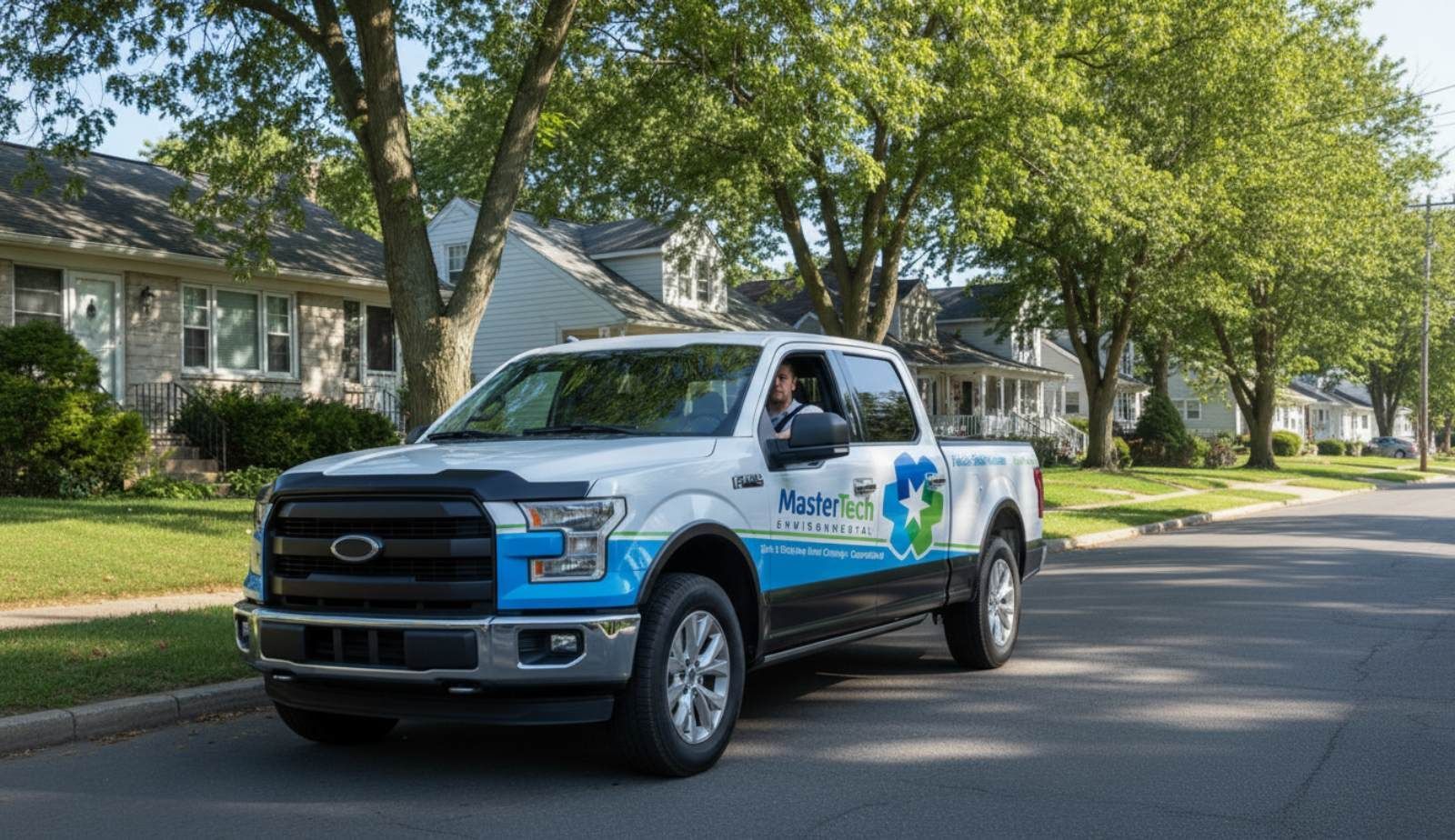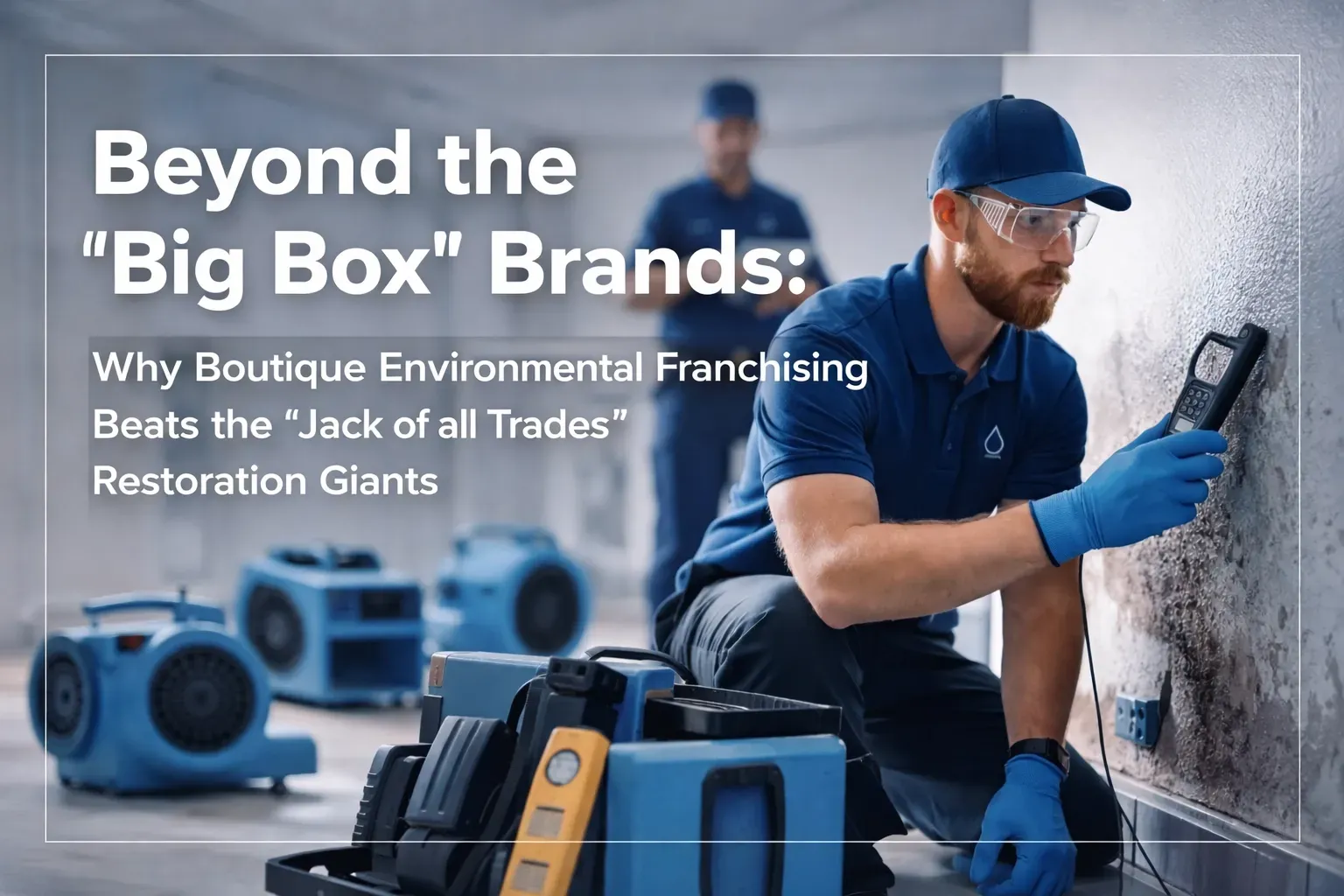
Many former corporate professionals are discovering new paths to fulfillment in the restoration industry. With a growing need for skilled operators in areas such as mold and bio remediation, these individuals are making impactful career changes. The blend of personal satisfaction from helping others and the opportunity for financial success makes this field particularly attractive.
Franchise opportunities, such as those offered by Mastertech Environmental, provide tailored training and support, allowing transitioners to thrive in their new roles. Testimonials from franchisees highlight transformations from stressful corporate environments to rewarding careers where they can make a meaningful difference in people's lives.
As they embark on this journey, these professionals often find not only stability but also a sense of purpose that may have been lacking in their previous positions. The restoration industry offers a unique platform for combining skill sets from the corporate world with a desire to assist communities in need.
Why Corporate Professionals Are Choosing the Restoration Industry
Many former corporate professionals are transitioning into the restoration industry, driven by a combination of personal fulfillment, industry growth, and the alignment of their skills with the sector's demands. The following key points explore their motivations in detail.
Key Motivations Behind Career Changes
Corporate professionals often seek a change due to dissatisfaction with the traditional business structure. Many desire more professional growth opportunities and fulfillment in their work. The rigid corporate hierarchy can feel stifling, prompting individuals to pursue careers where their contributions are more visible.
Additionally, the restoration industry offers a chance for entrepreneurship. Former professionals are inspired by the idea of building something meaningful and impactful. This desire for autonomy and the ability to implement their vision can be a strong motivator for change.
Industry Demand and Growth Potential
The restoration industry is experiencing significant growth, largely due to increasing awareness of environmental issues and disaster recovery needs. Economic fluctuations can lead to unforeseen damages, making restoration services essential.
Professionals entering this field find numerous opportunities to establish successful careers. The demand for skilled restoration experts is anticipated to rise, offering long-term career stability. This growth potential attracts those looking for a future-proof career that evolves with market needs.
Alignment of Skills and Values
Many corporate professionals possess transferable skills that align well with the restoration industry. Skills such as project management, customer service, and strategic planning are directly applicable.
Moreover, individuals often value the industry's commitment to making a difference, whether through disaster recovery or environmental sustainability. This alignment of personal values with professional responsibilities enhances job satisfaction and encourages a fulfilling career path.
The restoration industry not only welcomes these skilled individuals but also allows them to make meaningful contributions to their communities.
Overview of the Mastertech Environmental Franchise
The Mastertech Environmental Franchise offers a structured pathway for individuals seeking to transition into the restoration industry. With a proven business model and strong brand recognition, it equips franchisees with the tools they need for success in a growing market.
Mastertech Franchise Systems Explained
Mastertech Franchise Systems specializes in environmental services, including mold remediation and water damage restoration. Founded in 2016, it focuses on training and support for franchisees, ensuring they are well-versed in industry standards and best practices. New franchisees receive comprehensive onboarding that covers both operational processes and customer service.
Mastertech employs a franchise model designed to help fast-track business establishment. Their extensive training programs cover key aspects such as marketing, sales, and technical skills needed for effective service delivery. This support is crucial for those transitioning from corporate professions to ensure a smooth entry into a new career.
The Mastertech Business Model
The Mastertech Business Model promotes a hands-on approach, allowing franchisees to deliver vital restoration services. Franchisees benefit from initial and ongoing training, marketing materials, and operational resources. This combination enhances the franchisee's ability to serve clients effectively while focusing on business growth.
Additionally, the franchise emphasizes strong operational guidelines that maintain consistency and quality across locations. Revenue opportunities are generated through various services, including emergency response for water damage, mold inspections, and biohazard cleanup. This diversity allows franchisees to tap into multiple revenue streams within the restoration industry.
Brand Recognition and Trust
Mastertech’s strong brand recognition plays a significant role in attracting customers. Through strategic marketing efforts and community engagement initiatives, the brand has positioned itself as a trusted name in environmental restoration.
Franchisees benefit from the established reputation of Mastertech, which can lead to quicker customer acquisition. The franchise's commitment to quality and customer satisfaction fosters trust, which is critical in the service industry. This trust not only aids in client retention but also supports franchisees in their efforts to grow their businesses within their local markets.
Franchisee Experiences: Transitioning From Corporate to Restoration
Many former corporate professionals are finding success and fulfillment in the restoration industry. Their experiences reflect a journey marked by professional growth, valuable mentorship, and success in areas they once only dreamed of pursuing.
Case Study: Corporate Backgrounds Turned Restoration Success
Dan Gordon, a former corporate executive, faced significant burnout in his previous role. He transitioned from a high-pressure job to owning a franchise within the restoration sector, specifically focusing on water damage and mold remediation. His corporate skills, like project management and budgeting, proved invaluable.
Another example is Craig Nielsen, who left a successful corporate career to join Restoration 1. He was drawn to the franchise model for its structured support network and commitment to community service. Both Dan and Craig demonstrated that skills acquired in corporate environments can translate effectively into entrepreneurial ventures in restoration.
Overcoming Challenges and Achieving Fulfillment
Transitioning from corporate life to franchise ownership is not without hurdles. Many franchisees encounter initial challenges, such as adjusting to a different pace of work and the need to wear multiple hats.
However, former corporate professionals often find that they can leverage their leadership and strategic thinking skills. Mentorship programs offered by franchise systems provide guidance, which helps ease the transition. Many discover newfound passion in helping others, fostering a sense of personal fulfillment that was lacking in corporate life.
Franchisee Success Stories
Franchisee success is evident in the stories of those who have embraced this change. They report increased job satisfaction, improved work-life balance, and positive community impact.
For instance, several franchise owners have created local job opportunities while rebuilding homes after disasters. They find joy in witnessing the tangible results of their work and contributing to the well-being of their communities.
The combination of professional development and personal growth makes the restoration industry an appealing option for career changers eager for meaningful work.

Comprehensive Training and Support for Career Changers
Transitioning into the restoration industry requires a solid foundation of knowledge and skills. Comprehensive training and support programs are crucial for ensuring that career changers can excel in their new roles.
Specialized Training and Ongoing Education
Specialized training programs are essential for equipping career changers with the specific skills needed in the restoration field. These programs typically cover industry-specific techniques, safety regulations, and environmental standards.
Participants engage in hands-on training sessions that allow them to apply theoretical knowledge in practical scenarios.
Ongoing education ensures that professionals stay updated on the latest industry trends and technologies. Continuous education opportunities, such as workshops and online courses, enable them to refine their skills and adapt to evolving practices.
Operational Guidance and Business Support
Career changers benefit significantly from operational guidance that provides insights into running a restoration business. This support often includes training in areas such as project management, client relations, and financial planning.
Franchise systems like Mastertech Environmental offer structured operational frameworks, simplifying the transition into business ownership.
Additionally, business support services can help new owners navigate legal requirements, marketing strategies, and resource management.
This guidance not only helps reduce the risks associated with starting a new venture but also builds confidence in decision-making.
Access to Mentorship and Technical Assistance
Access to mentorship programs can greatly enhance the learning experience for those entering the restoration industry. Mentors provide individualized support, sharing insights from their own experiences and helping navigators overcome challenges.
Technical assistance is also available, focusing on specific issues such as equipment use and restoration techniques.
Having a knowledgeable mentor fosters a culture of continuous learning, encouraging newcomers to ask questions and seek advice.
Opportunities for networking with industry experts and peers can further enrich career changers’ experiences, allowing them to build valuable connections.
Profitability and Business Growth in the Restoration Industry
Understanding the financial landscape is crucial for success in the restoration industry. Focusing on diverse revenue streams, effective financial planning, and a strategic approach to scalability can boost profitability and foster business growth.
Revenue Streams and Recurring Business
In the restoration industry, multiple revenue streams can enhance financial stability. Typical income channels include residential and commercial restoration projects, consulting services, and regular maintenance contracts.
Recurring revenue is vital; it often comes from service agreements requiring ongoing work, such as mold control or water damage prevention services. This not only creates a steady cash flow but also strengthens client relationships.
Business owners often find that diversifying services—such as expanding into environmental testing or emergency response—can significantly increase profit margins. This strategy not only captures more market share but also maximizes the lifetime value of each client relationship.
Financial Planning and Managing Operational Costs
Effective financial planning is essential for maintaining profitability. Business owners need to create detailed budgets that include startup costs, operational expenses, and projected revenues. Key operational costs can include labor, materials, equipment, and marketing.
Implementing cost control measures can improve profit margins. For instance, utilizing digital tools for project management can streamline operations and reduce administrative expenses. Regular financial reviews help identify inefficiencies and areas for improvement.
Investing in employee training can also yield higher returns, as skilled workers tend to complete projects faster and with fewer mistakes, enhancing customer satisfaction and repeat business.
Scaling and Strategic Growth
Scalability is a critical factor for growth in the restoration sector. As companies expand, they must consider how to manage increased workload without sacrificing quality. This often involves hiring additional staff or investing in technology.
Strategic growth can take many forms, including franchise opportunities or partnerships. For example, Mastertech Environmental offers franchising options that provide a proven business model and established support systems, making entry into the industry more accessible for former corporate professionals.
By carefully planning growth strategies and continuously seeking new market opportunities, restoration businesses can effectively increase their footprint and profitability.

Diverse Services Provided by Restoration Franchisees
Restoration franchisees offer a wide range of services that address critical issues affecting residential and commercial properties. Their expertise not only helps restore damaged environments but also ensures the safety and health of occupants. The following details some essential services provided by these professionals.
Mold Remediation and Inspections
Mold growth poses significant health risks, necessitating thorough inspections and effective remediation strategies. Restoration franchisees conduct extensive mold inspections to identify affected areas and types of mold, including hazardous black mold. These assessments often include air quality tests to measure mold spores in the environment.
Once the source of moisture is identified, franchisees perform mold removal using specialized techniques and equipment. This process may involve sealing affected spaces, employing powerful vacuums, and applying antimicrobial treatments. The emphasis on comprehensive inspections ensures that any underlying issues, such as plumbing leaks or insufficient ventilation, are addressed to prevent future mold growth.
Water Damage and Flood Cleanup
Water damage, whether from leaks, floods, or burst pipes, requires swift action. Restoration franchisees offer water damage restoration services that include a systematic approach to water damage cleanup. This consists of assessing the extent of damage, which is critical for effective recovery efforts.
Using advanced equipment, like water extractors and dehumidifiers, they efficiently remove excess water and moisture from affected areas. Franchisees also conduct thorough drying and sanitization processes to prevent mold growth post-cleanup. Additional services may include drywall repair and flooring replacement, ensuring that the property returns to its pre-damage condition.
Specialty Cleaning: Hoarding, Biohazard, and Odor Removal
Specialty cleaning services are crucial for handling sensitive situations. Restoration franchisees are trained in hoarding cleanup, which requires compassion and discretion. These professionals help declutter and sanitize spaces, ensuring the safety and well-being of the individuals involved.
Biohazard cleanup is another essential service, focusing on hazardous situations such as crime scenes or unattended deaths. These trained experts follow strict protocols to safely handle and dispose of harmful materials, minimizing health risks.
Additionally, franchisees tackle odor removal, which encompasses a variety of unpleasant smells resulting from sources like mold, smoke, or decay. Utilizing specialized equipment and cleaning agents, they effectively neutralize odors and improve indoor air quality.
Fire and Smoke Restoration Services
Experiencing a fire can be devastating, making fire damage restoration services essential. Restoration franchisees quickly assess the damage by evaluating both visible destruction and hidden smoke residues.
To restore properties, they utilize techniques that include smoke removal, soot cleaning, and odor neutralization. Franchisees also focus on repairing structural damage, such as walls and roofing, ensuring homes and businesses are safe and livable again.
In addition to damage restoration, they may offer guidance on preventing future incidents through safety recommendations. This comprehensive approach ensures that property owners can navigate the aftermath of a fire with confidence.
Operational Excellence: Leadership, Customer Service, and Marketing
In the restoration industry, operational excellence hinges on effective communication, robust marketing strategies, and strong leadership. These components directly influence success and growth, making them essential for franchisees in this sector.
Effective Communication and Client Relationships
Effective communication is crucial for building and maintaining client relationships in the restoration field. Clear, timely interactions foster customer trust and enhance customer satisfaction. Franchisees should prioritize regular updates during project management to keep clients informed about progress and expectations.
Utilizing various communication channels, from phone calls to emails and text messages, ensures that clients can easily reach out. Feedback mechanisms also play a vital role in understanding client needs. By actively seeking input, businesses can address concerns promptly and adjust services accordingly.
This proactive approach helps in nurturing relationships, which is critical for repeat business and referrals.
Marketing Strategies and Brand Visibility
Marketing strategies tailored for the restoration industry are essential for establishing brand visibility. Targeted digital marketing initiatives, such as social media campaigns, help reach potential clients effectively. These platforms provide a means to showcase customer testimonials, which enhance customer trust.
Furthermore, franchisees should invest in local SEO to ensure their services appear in relevant searches. Creating informative content that addresses common restoration issues can position businesses as industry leaders. Coupled with marketing assistance from the franchise, these strategies can significantly boost brand awareness.
Local partnerships and community events can further enhance visibility, fostering connections that resonate with potential clients.
Leadership in Franchise Operations
Leadership plays a pivotal role in optimizing business operations within a franchise. Effective leaders instill a culture of excellence that permeates the team. They set high standards for performance and instill values that prioritize customer service.
Franchise leaders must also provide support and training to their teams. This includes offering marketing support and project management training, empowering employees to perform confidently. A strong leadership presence creates an environment where team members feel valued and motivated.
Such an atmosphere is essential for maintaining service quality, ensuring that clients receive the best experience possible throughout their restoration journey.
Resilience and Adaptability in a Changing Environment
In the restoration industry, professionals must embrace resilience and adaptability to navigate various economic and environmental challenges. The ability to respond effectively to natural disasters and technological advancements significantly impacts the success of restoration services.
Coping With Economic and Environmental Challenges
Restoration professionals face significant hurdles due to economic fluctuations and environmental changes. Economic resilience is critical in responding to unexpected downturns in demand or funding. To maintain service continuity, they often diversify their client base and service offerings.
Moreover, climate change poses increased risks of more frequent and severe natural disasters. Professionals must be equipped to respond to these challenges effectively, requiring training in emergency response protocols. This includes developing strategies for quick deployment in affected areas and ensuring supplies are readily available for immediate action.
Leveraging Technological Advancements
Technological advancements play a vital role in enhancing resilience within the restoration industry. Utilizing software for project management can streamline operations, ensuring that team members communicate effectively and tasks are completed promptly.
Additionally, adopting advanced equipment and techniques, such as drones for damage assessment and moisture detection, improves efficiency in restoration efforts. By leveraging technology, restoration professionals can respond faster to emergencies, reducing the impact of disasters on affected properties. Investing in ongoing training also ensures teams remain up-to-date with the latest innovations in the field.
Adaptability in Restoration Services
Adaptability is essential for restoration services to meet evolving client needs. Professionals in this sector often encounter unique challenges depending on the specific disaster or environmental factor at play. Each situation may require a tailored approach, from water damage recovery to mold remediation.
This adaptability can be cultivated through continuous learning and experience. Networking with industry peers and participating in professional development opportunities keeps restoration professionals informed about new techniques and best practices. By fostering a culture of flexibility, teams can effectively pivot and address diverse client needs promptly as circumstances shift.
Frequently Asked Questions
This section addresses common inquiries from individuals considering a shift from corporate roles to the restoration industry. It highlights motivations, skills transfer, and real-life success stories, along with anticipated challenges and the unique benefits of owning a Mastertech Environmental franchise.
What motivates former corporate professionals to switch to a career in the restoration industry?
Many former corporate professionals are drawn to the restoration industry due to a desire for meaningful work. They often seek a greater sense of purpose, which can be found in helping individuals and communities recover from disasters. The dynamic nature of the industry also appeals to those looking for a break from the monotony of corporate life.
How do the skills acquired in the corporate world translate to success in the restoration business?
Skills such as project management, customer service, and financial acumen are highly valuable in the restoration sector. Many former corporate professionals leverage their experience in operations and team leadership to streamline processes and improve service delivery in restoration. Effective communication skills also help them connect with clients during challenging times.
Can you provide real-life examples of corporate professionals who made a successful transition to restoration?
There are several examples of individuals who transitioned successfully from corporate careers to restoration. For instance, a former marketing executive utilized her strategic planning skills to enhance client outreach for a restoration firm. Another example is an IT manager who applied his problem-solving skills to oversee technical aspects of restoration projects.
What are the primary benefits reported by former corporate employees who now work in restoration?
Former corporate employees often report increased job satisfaction and a stronger sense of community in restoration roles. They appreciate the hands-on nature of the work and the ability to make a direct impact on people’s lives. Flexibility in work hours and the opportunity for entrepreneurial growth are also commonly cited benefits.
What challenges should career changers anticipate when moving from corporate to restoration services?
Career changers may face initial adjustments in adapting to a less structured environment compared to corporate settings. The restoration industry often requires on-call availability, which can be a significant shift. Additionally, individuals may need to acquire new technical skills or certifications related to restoration practices.
How does owning a Mastertech Environmental franchise provide fulfillment for those with a corporate background?
Owning a Mastertech Environmental franchise allows former corporate professionals to harness their business acumen while contributing to community welfare. The franchise model provides a framework for success, offering training and support. This structure helps them feel empowered and fulfilled as they lead teams and manage projects that make a lasting difference.
Get in Touch
Contact Us
Don't be a stranger!
30 Broad St, Unit 7
Denville, New Jersey 07834



